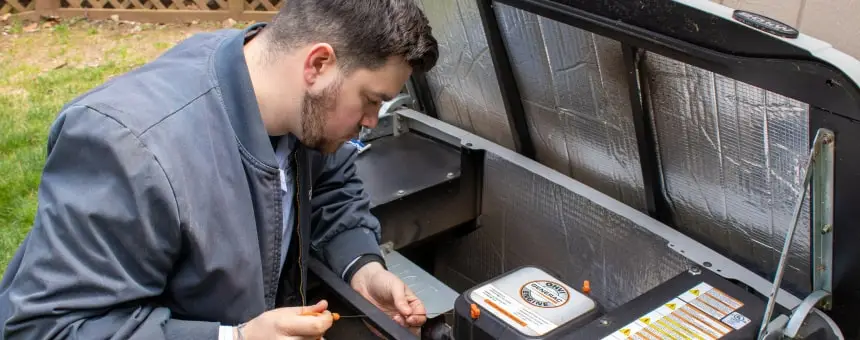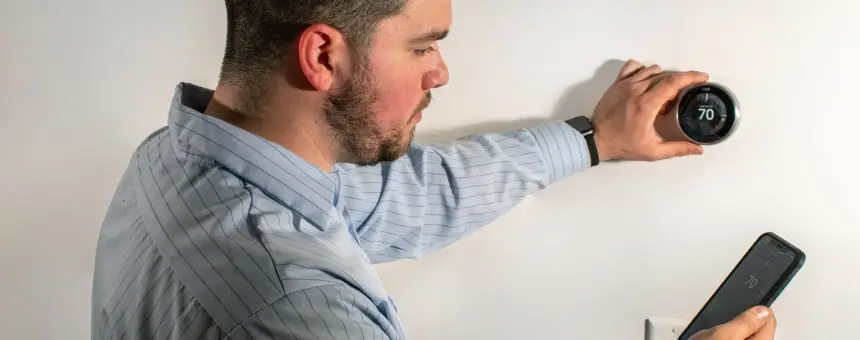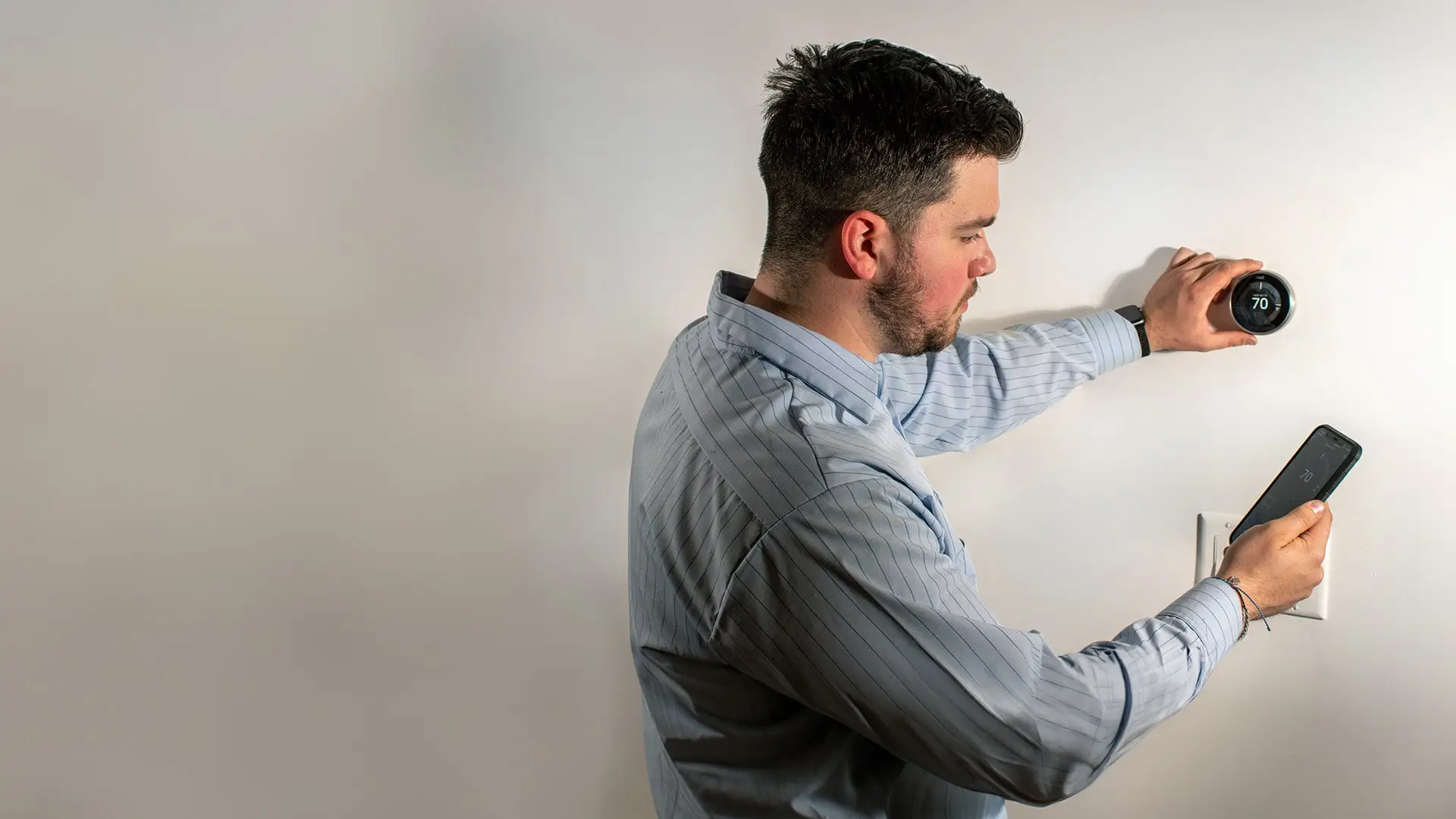Winter is upon us and we’ll have snow and ice here in Westchester county before we know it. Now is the time to winterize your home to protect your property and family. Find out what you stand to gain, and what tasks you need to take care of.
Why is it important to winterize your home?
Cold weather brings some serious risks. Almost all of them are preventable when you winterize your home. Here are the benefits:
- Prevent damage to your home, such as water damage from frozen pipes or a leaking roof. Especially if you’re traveling this winter, you may not be home to catch problems in time to prevent serious damage. It’s best to be proactive.
- Save money on utility bills. Your HVAC system accounts for nearly 40 percent of your home’s energy usage. The items on our checklist help to prevent heat loss and make your heating equipment operate more efficiently, so you use less energy and save money.
- Keep your family safe. Being without heat in an emergency or having carbon monoxide build up in your home can have devastating consequences. Preventative steps to winterize your home can help keep your loved ones safe.
How to winterize your home: a comprehensive checklist
Service your heating system
A heating tune up includes an inspection of your system to find any impending problems and fix minor issues so they don’t become major ones. It’s the best way to prevent a breakdown or a dangerous carbon monoxide leak. Learn more about our whole home maintenance program.
Switch to smart thermostats
If you still have manual thermostats, you’re missing out on an easy way to reduce your utility bills. Smart thermostats let you create automated heat settings based on your family’s schedule. You can also control your thermostat from an app on your phone. Be sure to set minimum temps above 55 degrees to prevent pipes from freezing in frigid weather.
Replace furnace filters
Clogged furnace filters make your system work harder and use more energy. In between heating maintenance appointments, you can change furnace filters yourself. Ask your technician which type of filter you need and how to change them.
Test and service your generator
Chances are, you’ll experience multiple storms that cause power failures this winter. Is your generator all set and ready to go? Test it ahead of time, and even better, have it serviced to ensure it’s working properly.
Don’t have a generator? Now is a great time to have one installed.
Install pipe insulation
When plumbing pipes freeze and burst, it can be a major disaster that costs you a lot of money. One helpful step you can take to prevent frozen pipes is installing insulation around any pipes that are at risk of freezing, such as those in a crawl space without any heating.
Test smoke & carbon monoxide detectors
You rely on smoke and carbon monoxide detectors to keep your family safe. But all too often, we tend to “set and forget” them. Whether you have the hard-wired or plug-in varieties, you should test them as part of your home winterization checklist.
Most models have a TEST button. Refer to the instructions for your model for what should happen when you press this button (it’s usually a specific alarm or pattern of beeps).
TIP: If your detector is hard-wired to a home security system, inform your alarm company before conducting a test to avoid a false alarm.
Seal windows and doors
Install weather stripping or caulk to seal any gaps around windows and exterior doors. That keeps the heat in so you stay warmer, lower your heating bills, and reduce wear and tear on heating equipment.
Add insulation
Older homes tend to lose a great deal of heat (and AC in summer) because the walls and attic lack sufficient insulation. Traditional rolls can be installed in attics and blown-in insulation added inside walls. By keeping heated and cooled air inside, you’ll notice lower utility bills and more comfortable conditions in your home.
Check & clean chimneys
When you use your fireplace, a highly flammable substance called creosote builds up over time. Have an expert check the condition of your chimney and remove the creosote to prevent a fire.
Clear gutters
Clogged gutters can lead to damaged roofing and siding. That causes water leaks and can allow critters to get into your attic or walls. Clear away leaves and debris, or install gutter guards.
Check and protect your roof
Before winter weather hits, make sure your roofing is in good shape. If you find any loose tiles, it’s better to repair them now than risk a leak. Also, consider installing snow guards to prevent heavy snow loads from damaging your roof.
Put away garden hoses
Sadly, you no longer need to water plants or wash your car at this time of year. To prevent damage, disconnect and put away hoses, and turn off outside faucet valves. You should also drain sprinkler systems.
Trim tree branches
Do you have tree branches leaning over the house? That’s a big risk in a major wind storm: you could end up with roof damage or broken windows. Hire a tree company to trim them back to safe levels.
Cover or put away outdoor furniture
The last thing you want is outdoor furniture that you’re not even using turning into a projectile in a snowstorm. Cover the furniture to keep it safe, and store in a garage if possible.
Maintain and store lawn & grilling equipment
Likewise, put away your outdoor grill, mowing and trimming equipment. While you’re at it, clean and oil your equipment as needed so it’s ready to use when you take it out next spring.
Check and test your snowblower
Take out your snowblower, test it, check the fuel and take care of any maintenance it needs. Don’t wait until a storm is on the way and you find out it’s not working.
Stock up on winter weather supplies
If you wait until a storm is coming, you may have trouble finding the supplies you need:
- Shovels
- Ice scrapers
- Ice melt
- Flashlights
- Batteries
- Battery-powered NOAA weather radio
- Water and non-perishable food
- Prescriptions
- Baby supplies
Get an energy assessment
A home energy audit or assessment is a simple way to identify ways you can save energy at home and lower utility bills. An energy auditor inspects your home and analyzes your home’s energy efficiency. You get a report that recommends changes you can make to save energy, based on your home’s age, design, condition, and usage.
When you make the recommended improvements, you can expect to save an average of 25% per year on energy costs.
Bruni & Campisi can help
If you are a homeowner in Westchester, Putnam or Fairfield counties, Bruni & Campisi can take care of quite a few of the tasks on this home winterization checklist. That includes tasks related to HVAC, plumbing, generators, and energy assessments.
Bruni & Campisi provides 24/7 emergency service, installation, and maintenance for plumbing, heating, air conditioning, and generators in Westchester, Fairfield, and Putnam Counties. We also offer sewer cleaning, and chimney cleaning. With our 40+ years of experience and training, you get the quality service you need.

$150 OFF
Complimentary Water Quality Consultation For New Customers
Get this dealCannot be combined with any other offers or memberships. Cannot be used on past work. Must be presented at time of proposal. Some exclusions may apply. See website for licensure. Offers Expire: 08/01/2025


MEMBERSHIPS
Bruni & Campisi offers a complete maintenance program for all your needs.
VIEW MEMBERSHIPS

